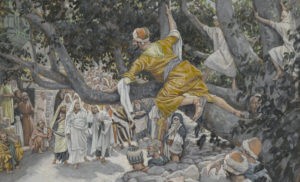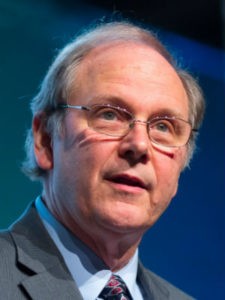Statistics for 2021 from across multiple Christian denominations reveal a decrease in church membership and active participation, according to the parachurch organization Exponential and the Pew Research Center.
This decline can be attributed, in large part, to the increasing number of Americans who express no interest in organized religion. These millions of people embrace the designation “none,” to reflect that on surveys and questionnaires, when asked for their religious preference, they mark the box labeled “none.” Currently, 25% of Americans now identify themselves as nones.
As award-wining journalist Deena Yellin explains: “They are ex-missionaries and military pilots, yoga instructors and computer programmers, mothers, fathers, professors and political activists. Some left religion on a rocky, anguished path, stung by abuse or shunned by family. Others came to the realization, after a lifetime of questions they couldn’t shake.”

(123rf.com)
But even those who used to be very active are changing their habits of church attendance and participation. In a recent BNG opinion piece, Rob Dyer, a Presbyterian pastor in Illinois, admits: “The church is realizing something not just about young adults, but also about people of all ages in our churches. They’re not coming back. The super volunteers who used to carry 20 positions in the church are now looking to do just a few things. Our regular attenders are becoming semi-regular. Our fringe folks are fading away.”
What might be influencing individuals — even our friends and neighbors — to reject Christianity or to leave the church? I suggest that for years, some congregations have been turning aside from the way of Jesus and thus losing their voice in society and their appeal for many Americans.
Here are several reasons why I believe this decline is the church’s internal problem.
The church is not relevant
First, the church is not relevant. As representative examples of irrelevancy, I offer the case of two political leaders, both Christians, from the state of Mississippi, where I attended college many years ago.

Mississippi State Health Officer Dr. Thomas Dobbs, right, watches an unmasked Gov. Tate Reeves respond to a reporter’s question during a news briefing regarding Mississippi’s COVID-19 response in Jackson, Miss., Aug. 13, 2021. (AP Photo/Rogelio V. Solis)
You may know that Mississippi’s governor, Republican Tate Reeves, is an evangelical. At a recent fundraising event, he defended his statement that Christians in Mississippi are “a little less scared” of COVID-19 than other people. Responding to a question from the Associated Press, Reeves said: “I believe very strongly in what the Bible says, and the Bible’s very clear that ‘Whosoever believeth in him shall not perish but have everlasting life.’ And, that is my worldview … and I think it’s what drives a large number of Mississippians. We should take necessary precautions with respect to COVID, but we also understand that we do have everlasting life if we believe in Jesus, if we believe in God the father, and I certainly do.”
Yet, as of Aug. 30 of this year, Mississippi — tied for first place, along with Alabama, as “the most devout state in the union, where 83% identify as Christian — had “the highest per-capita rate of new coronavirus cases and deaths in the United States,” according to U.S. News & World Report.
Another evangelical politician, Mississippi Secretary of State Michael Watson, spoke at the state’s National Day of Prayer event last May. Instead of leading a prayer for the wisdom to address the many problems his fellow citizens are facing, he declared: “If you’re a believer, if you’re a member of the church, you understand the signs of the times right now. In the last few years, (more) than ever before in the history of the church, we see the end times.”
Sadly, while this state’s leaders are testifying to their religious credentials or awaiting a future rapture, citizens of all religious affiliations, or none, are suffering real trauma in the present.
When a Christian public figure uses John 3:16 to substitute for sensible COVID-19 safety measures, or argues that looking for signs of the end times is what faithful believers should be doing, then those who are just trying to survive the personal tragedies of the pandemic, violence in their urban neighborhoods, the injustices of racial discrimination, sad and desperate loneliness, betrayal in their marriages, the shattering loss of a child, a frightening diagnosis, the debilitating wound of self-doubt, or any one of a thousand other evils, may conclude that the church is irrelevant.
More than 60 years ago, however, a new way of understanding God began to be circulated among non-professional religious thinkers at the grassroots. They wanted to know God’s response to people like themselves — people on the margins, in pain, with perplexing questions about justice and hope. Their conversations and conclusions led to the emergence of a new system of theological reflection and action known as “liberation theology.”
As the journal U.S. Catholic explains: Liberation theology “had its origins in Latin America in the mid-1950s as socio-economic development pushed the peasant workers and farming populations into desperate poverty. With the economic unrest came political unrest, and military dictators took over many governments in the name of national security.
“While these social and political transformations were taking place, the church as a whole was also moving toward a more socially oriented mission. Laypeople, religious, and charismatic members of the hierarchy committed themselves to working with the poor.”

“Cristo de la Liberacion” (Christ of the Liberation) by Maximino Cerezo Barredo.
The article continues to explain that in liberation theology, “Jesus becomes the ‘liberator’ and always is firmly on the side of the poorest of the poor. Because of this preference for the poor, (this way of understanding God and God’s mission in the world) often calls for reorganization of social, governmental and economic structures so that the poor are not merely cared for, but brought into the fullness of human flourishing.”
Liberation theology was perceived as threatening the power brokers — and it is still largely rejected by conservative Christian institutions today — but a church that preaches that God is on the side of the poor and wants every single person to flourish is proclaiming good news indeed, a message both relevant and appealing.
Regrettably, however, some parts of the universal church seem more interested in the sweet by and by than the gritty here and now.
The church is not challenging
Second, the church is not challenging. For many former church attenders, and certainly a lot of “nones,” belonging to a contemporary church is undemanding. With its state-of-the-art sound and projection equipment, padded pews or theater seats, coffee machines and snack bars in the lobby, gift shops, gymnasiums, bowling alleys or pools and motorized trams to deliver worshippers to their distant cars (“Honey, did we park today in Stephen or Priscilla?”), some churches seem more like country clubs than catacombs, focused more on ease and entertainment than on revolution and risk.
John Pierce asks how much of American Christianity got to be so far from Jesus, who didn’t tell us to “accept” but to “follow” him? Many churches — especially evangelical ones, he contends — have lost the Way.
Pierce writes: “’Accepting Jesus was devised for manufacturing Christians through a discernible process. It’s easier to count those who have prayed ‘the sinner’s prayer’ than those who keep on walking additional miles, caring for the least of these and loving their enemies.”
 On a recent Easter Sunday at a large Texas Baptist church, hundreds of excited children, carrying their Easter baskets, were released into a large green space on the campus where they eagerly waited as thousands of plastic candy-filled eggs were dropped onto to the field by a circling helicopter. For those children, Easter was less about a resurrecting God than a flying bunny.
On a recent Easter Sunday at a large Texas Baptist church, hundreds of excited children, carrying their Easter baskets, were released into a large green space on the campus where they eagerly waited as thousands of plastic candy-filled eggs were dropped onto to the field by a circling helicopter. For those children, Easter was less about a resurrecting God than a flying bunny.
Ken Wytsma, a pastor from Beaverton, Ore., comments: “The reduction of God’s good news in Jesus to a magic formula … allows for a highly personalized and consumer approach to salvation. Instead of requiring everything, it requires nothing.”
That is not like the way the Christian movement began, however, with believers living as a powerless and persecuted minority community. In reality, says pastor Russ Dean of Charlotte, the church is called to die.
It was only after Constantine converted and Christianity became the official religion of the Roman empire that the church lost its original calling. Dean posits: “The church is called to die? Not with Constantine enjoying global domination with the Cross as the ensign of Empire.
“Seventeen hundred years later, with a global pandemic bringing the church to its knees, we may have a chance to learn if that institutionalization of the church, the colonializing of the calling of Jesus, the growth of numeric Christianity, really was the providence of God or actually an extremely long detour from our true mission.
“If Jesus called his followers to ‘take up your cross and follow,’ maybe the church is also called to that same kind of life.”
But the church often seems to prefer convenience, comfort and cleverness over challenge.
The church is not accepting
Third, the church is not accepting. The contemporary institutional church, especially its evangelical branch, has difficulty accepting those with whom it disagrees. Here are several examples.

Addie Davis
Women, who form the backbone of so many Baptist congregations, have struggled to find their equal place in pastoral leadership. The first Baptist woman ordained to ministry was Addie Davis in 1964. Through the decades since then, the ordination of women has remained a subject of bitter disagreement.
As recently as last June at the annual meeting of the Southern Baptist Convention, denominational leaders were scandalized by the ordination of three female staff members at Saddleback Church in California. Despite the fact that Saddleback is one of the largest congregations in the convention, and its pastor, Rick Warren, is a Christian media star and author whose book The Purpose-Driven Life has brought millions of dollars to Baptist Book Stores, both the church and pastor came under attack by those who wouldn’t accept Saddleback’s endorsement of women for ministry.
People of color do not always feel welcome in predominantly white Christian institutions. The old quip is that the most segregated hour of the week in the South is 11:00 on Sunday morning. Serene Jones, president of Union Theological Seminary, co-wrote an article for Time magazine a few weeks ago that wonders why conservative Christians are so afraid of Critical Race Theory.
The article begins: “Republican legislators nationwide are waging a fierce battle to prevent educators from teaching Critical Race Theory — and they’re being helped by conservative Christian leaders willing to intentionally misrepresent their faith for political gain.
“Take the Conservative Baptist Network, a major partnership of Southern Baptists across states, which called CRT ‘anti-gospel’ and ‘divisive’ and incompatible with efforts to oppose racism. … And in his new book, Voddie Baucham argues that CRT falsely creates its own version of original sin — racism — and gives no hope for forgiveness. (He even) proclaims (that) antiracist education is a greater evil than racism itself.”
The idea that racism is America’s “original sin” may be associated in Voddie Baucham’s mind with Critical Race Theory. Yet before CRT was on evangelicals’ radar, racism as original sin was the subject of a 2016 book by progressive evangelical Jim Wallis, America’s Original Sin: Racism, White Privilege, and the Bridge to a New America. Of all the criticisms Wallis has gotten from conservative Christians over the years concerning his views, this book may have received the most pushback.
“The most controversial sentence I ever wrote was not about abortion, gay marriage, the wars in Vietnam or Iraq, elections, or anything to do with national or church politics. It was a statement about the founding of the United States.”
He admits: “The most controversial sentence I ever wrote was not about abortion, gay marriage, the wars in Vietnam or Iraq, elections, or anything to do with national or church politics. It was a statement about the founding of the United States (namely), “The United States of America was established as a white society, founded upon the near genocide of another race and then the enslavement of yet another.”
Among Wallis’s fiercest critics were certainly a lot of Southern Baptists, as well as other evangelicals and conservative Christians.

U.S. Customs and Border Protection mounted officers attempt to contain migrants as they cross the Rio Grande from Ciudad Acuña, Mexico, into Del Rio, Texas. The Border Patrol’s treatment of Haitian migrants, they say, is just the latest in a long history of discriminatory U.S. policies and of indignities faced by Black people, sparking new anger among Haitian Americans, Black immigrant advocates and civil rights leaders. (AP Photo/Felix Marquez)
Immigrants are rejected by many Christians, whose own ancestors came to America from other countries. The Harvard Divinity Bulletin explores the oxymoronic situation where those who claim to follow an inerrant Bible are so opposed to receiving immigrants into our country.
The Bulletin asks: “What factors shape how white evangelicals approach the question of immigration? On the one hand, the Bible, and Christian tradition, have a lot to say about loving the stranger and caring for the foreigner. … And yet, white evangelicals — those who claim to hold the Bible in highest regard — are more opposed to immigration reform, and have more negative views about immigrants, than any other religious demographic. …
“In fact … a Southern Baptist research poll found that 90% of all evangelicals say that “the Scripture has no impact on their views toward immigration reform.”
Climate change believers and activists are often ignored or even denigrated at church. Do you remember when “tree huggers” was a frequently used nickname for nature-lovers that caused snickers in adult Sunday school class conversations? As increasing hurricanes, floods, tornados, earthquakes and droughts devastate many regions of the earth and our own country, many churches continue to think that loving the earth by protecting the environment is not as immediately important as rescuing the interior, spiritual lives of their church members or saving others who are not yet Christians. Despite the worldwide attention on COP26 in Glasgow, some Christians still wonder why protecting the earth matters, since “this world is not (our) home, we’re just a-passin’ through.”
In a podcast from NPR called Rough Translation, Gregory Warner noted that “conservative political priorities around climate change have trickled down to church sermons, (while) exhortations from the pulpit (warn) against the “blasphemy” of environmentalism.” It is peculiar that evangelicals are the most likely Christians to believe creation accounts and affirm that God intends for humans to be good stewards of the earth, yet according to a Yale study they are also the least likely to believe “that climate change is real and human-caused.”
And, the LGBTQ community continues to seek acceptance from large segments of the Christian church. Some churches say they love all people, or even that they welcome all people. But, at closer inspection, their stated hospitality may actually translate to “we welcome LGBTQ persons to confess their sins and trust Jesus,” or “we will accept gay persons if they will live with total sexual abstinence or enter a conversion-therapy program we sponsor.”
In all of these ways, then, the church is not proving itself to be as accepting as it should be — of women, people of color, immigrants, climate change activists, and the LGBTQ community. Perhaps we need to resurrect the WWJD bracelet, for what, indeed, would Jesus do? In fact, who would Jesus reject?
The church is not Christlike
Finally, the church is not Christlike. This is a radical assertion to make. What can I possibly mean? I am arguing that the church, in its words and actions, has departed from the Jesus way.

“Christ as the Man of Sorrows,” 1520-30, Quentin Metsys. Getty Museum.
Jesus was marginalized. He was poor, powerless, misunderstood, maligned, arrested, tortured and murdered. Contrary to that, the church of today is celebrated, by some, as the most important institution in the community. It is often very rich. It tends to speak from its position in or association with the centers of power. Only in certain parts of the world is the church truly persecuted. It certainly does not really suffer in America, despite the loud cries of the Religious Right that it is under attack from liberals, socialists, Democrats, gays, Hollywood, network purveyors of fake news, academics or other religions.
Jesus broke conventional rules of polite, Jewish religious society. He associated with prostitutes and tax-collectors. He touched the bodies of lepers and the corpses of the deceased. He interacted with and uplifted women, children, peasants, the infirm, the demon-possessed or mentally ill and Gentiles. But the church today works very hard to be accepted by its surrounding society. Rather than being the kind of Christians that Stanley Hauerwas and William Willimon call “Resident Aliens,” many congregations of the contemporary church strive to blend with society in order to be appealing.
Moreover, Jesus performed acts of humanitarian aid more than he preached or taught, if the Gospel accounts accurately present his priorities. But much of the church today acts as if the most important part of God’s mission in the world is to preach the gospel, then baptize and teach converts (Matthew 28) instead of to take care of God’s “little ones” (John 21).
Jesus engaged people of other faiths who lived all around him. He related to Samaritans, Romans, other Gentiles and those who seemed to follow no religious path, yet he did so with compassion, respect and cooperation. Alternately, the church today is often fearful, suspicious, judgmental and unloving toward persons who are not Christians. They treat the Religious Other as targets for evangelism but not as neighbors and friends.
Finally, Jesus focused on ethical orthopraxis more than on doctrinal orthodoxy. John 14:6 has Jesus claiming to be “the way, the truth, and the life.” The “way” is an ethical way, a manner of living, a pathway that one walks and not just a doorway to an afterlife marked “Heaven’s Gate.” That’s why the earliest believers were known by others as “Followers of the Way.”
Maybe we should embrace the old gospel song again: “I walked today where Jesus walked.” On his journey both inside and outside of Palestine, Jesus walked an ethical way. He healed the frightened woman who was hemorrhaging blood and was desperately weakened and hopeless but was bold enough to risk a crowd’s censure and touch the mysterious stranger’s cloak.

“Zacchaeus in the Sycamore Awaiting the Passage of Jesus,” James Tissot, 1886-1896. Brooklyn Museum of Art.
He asked Zacchaeus to give back money he had extorted and then shocked everyone by going home for dinner at the tax collector’s house. He forgave the woman caught in adultery and stopped her from being stoned to death by self-righteous male accusers. He cast the demons out of the man from the Gadarene tombs and enabled him once again to be accepted by others. He listened to the anxious Syro-Phoenician mother’s protestations and rescued her daughter from life-threatening illness. He stopped the funeral procession in the road and resurrected the dead son of the widow of Nain. He forgave his crucifiers and comforted the dying thief on the cross next to his own.
So often, however, the church puts orthodoxy above orthopraxis, which just isn’t very Christlike at all.
Conclusion
The contemporary church is in trouble. My opinion is that the danger it faces originates from within. The church’s decline in membership and active participation does not stem from postmodernity, culture wars, government restrictions, liberal theologians, atheist academics, religious pluralism in society, the LGBTQ community and its “agenda,” the entertainment industry, COVID and measures or mandates to overcome the pandemic, or any other external factor.
Instead, the increasing numbers of “nones” and no-longer active church members can be blamed on internal failures of the church, such as these I have mentioned. Many individual churches today are not relevant, challenging, accepting or Christlike.
To be known as a congregation that displays these and other characteristics that mark Jesus followers may mean the membership of our church does not grow larger but becomes deeper and truer. Jesus himself led a small congregation of men and women who were growing deeper in their understanding and truer in their walk with him.
“To be known as a congregation that displays these and other characteristics that mark Jesus followers may mean the membership of our church does not grow larger but becomes deeper and truer.”
Maybe in order to be that kind of church, we should rethink some aspects of our community life together so that we respond to people’s felt needs more genuinely (see Acts 2:43-47; 4:32-35). We may need to discover together what it means to answer Christ’s call “to come and die,” as Dietrich Bonhoeffer said and did.
We perhaps must more radically accept people and positions considered unacceptable in our circle of friends, our community, our church’s denominational body or our culture. We might decide that we will “be in the world but not of the world” (John 17:14-15) as “Christ-ians” — no matter the personal risk.
Is the decline in Christian identity and church involvement irreversible? Have we departed so far from the Jesus way that we as the church of the living God can never regain our voice or appeal in society? I hope not.

Robert Sellers
Rob Sellers is professor of theology and missions emeritus at Hardin-Simmons University’s Logsdon Seminary in Abilene, Texas. He is the immediate past chair of the board of the Parliament of the World’s Religions in Chicago. He and his wife, Janie, served a quarter century as missionary teachers in Indonesia. They have two children and five grandchildren.
Related articles:
How the evangelical church messed up and lost its way | Opinion by Terry Austin
Do you play church in a pretend world or serve people in the real world? | Opinion by Mark Wingfield
A short history of the roots of colonialism, racism and whiteness in ‘Christian worldview’ | Analysis by Jacob Alan Cook


